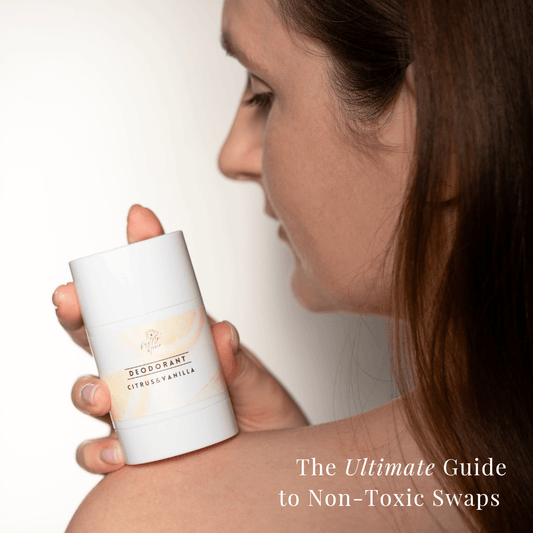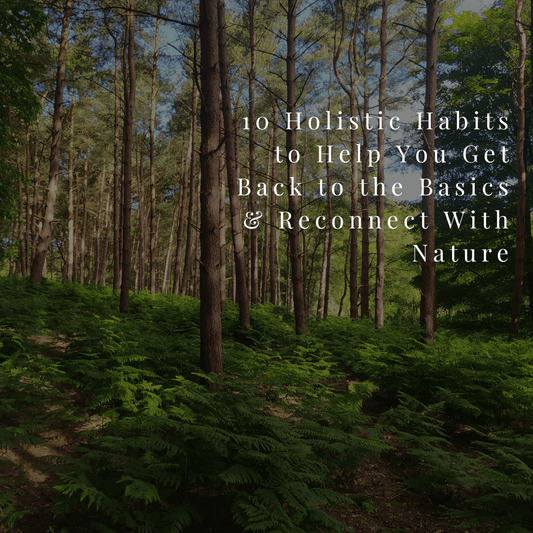The Truth About Birth Control: A Natural Perspective
Birth control is a contentious topic, sparking debates among health professionals and the public alike. Opinions diverge sharply, but at Kayle at Home, we embrace challenging conversations. When our community seeks a natural perspective on controversial subjects, we dive in. Today, we tackle:
- The real risks of the birth control pill
- Its impact on health
- Long-term effects to consider
We refuse to shy away from honesty and transparency, shedding light on aspects the industry might overlook.
This post is for those:
→ Curious about hormonal birth control's side effects
→ Seeking guidance on safely discontinuing birth control
→ Wanting to restore balance post-birth control
While we're not doctors and this isn't medical advice, our stance is firm. Despite common myths and overlooked side effects, we believe there's a superior approach. Birth control isn't the solution for acne, PCOS regulation, or hormone balance. The truth is, there's a better way.
Why Hormonal Birth Control Isn't Healthy
At its core, hormonal birth control disrupts natural bodily functions. By suppressing ovulation and altering menstrual cycles, it deceives the body into a pseudo-pregnant state, affecting hormone production.
Despite claims of some being "better," the key takeaway remains: birth control disrupts vital cyclical functions crucial for reproductive and overall health. Even if some forms maintain a semblance of a menstrual cycle, it's not genuine.
Ovulation is essential for hormone balance, influencing:
- Muscle gain
- Blood sugar regulation
- Bone, brain, and cardiovascular health
- Inflammation reduction
- Immune function regulation
- Thyroid and breast tissue support
Prescribing birth control for pregnancy prevention or hormone regulation lacks consideration for its risks. Normalising hormonal birth control overlooks its synthetic nature's potential consequences.
The Fallacy of the Birth Control "Period"
Many hormonal birth control methods simulate a menstrual period to maintain the illusion of preserving natural rhythms. However, these "bleeds" aren't genuine menstrual cycles.
A true menstrual cycle involves ovulation and progesterone production. Any other bleed, including those induced by birth control, lacks these essential components, impacting overall health.
Birth Control: A Temporary Fix
Society ingrains the belief that constant contraceptive use is necessary, trivialising the risks. Birth control isn't a panacea; it's a temporary solution with significant repercussions.
Synthetic hormones differ from natural ones, requiring the body to work harder for processing. Hormonal imbalances or acne often stem from inflammation, not hormone deficiencies, making birth control a band-aid fix at best.
The risks extend beyond immediate concerns, potentially leading to severe long-term issues.
The Risks of The Birth Control Pill
Some of the more obvious risks of the birth control pill include:
Fertility struggles: Birth control suppresses ovulation, making it confusing for your body when you stop taking it. It can take months or even years for your cycle to regulate, affecting fertility.
Worsened skin: Despite being prescribed to alleviate skin issues, hormonal birth control can exacerbate them. By introducing synthetic hormones, it disrupts your body's natural hormone production.
Mood swings or depression: Maintaining a healthy hormonal balance is crucial for mood regulation. However, the hormonal variations caused by different birth control blends can lead to severe mood swings or depression.
Disconnection from your body: Your menstrual cycle serves as a vital indicator of health and balance. Birth control disrupts this natural process, making it easy to lose touch with your body's cues.
Many individuals experience additional complex issues such as:
- Gut dysfunction
- Decreased ability to detoxify
- Estrogen dominance
- Poor stress response and heightened cortisol levels
- Liver congestion
- Chronic headaches
- Insulin (blood sugar) issues
- Weight gain
- Reduced libido
These risks should be taken seriously, especially considering the long list of side effects and minimal promised benefits aside from contraception or symptom suppression.
Balancing Hormones After Birth Control
Transitioning off birth control can feel daunting, especially after long-term use. However, there are numerous ways to support your body's balance and health, including:
- Nourishing foods: Prioritise whole foods while minimising sugar, inflammatory foods, and processed oils to support gut health and hormonal balance.
- Hydration: Proper hydration is essential for detoxification and overall balance.
- Quality supplements: Consider high-quality prenatal supplements, beef liver capsules, and adaptogens to replenish nutrients depleted by birth control.
- Stress reduction: Lower stress levels to promote hormonal balance through better sleep, vagus nerve stimulation, and self-care practices.
- Detoxification: Support your body's detoxification process through sweat, lymphatic stimulation, and at-home detox protocols.
- Non-toxic lifestyle: Reduce toxin exposure by replacing personal care and household products with non-toxic alternatives.
- Liver support: Regular use of castor oil packs can aid liver function, supporting hormone regulation.
- Natural birth control methods: Consider barrier protection or fertility tracking methods to return to a more balanced state.
Ultimately, the power lies in returning to your body's natural rhythms. While these practices are generally safe and effective, seeking guidance from a functional doctor can provide personalised approaches addressing the root cause of hormonal imbalance.
Say No to the Unnecessary Risks of the Birth Control Pill
Here’s the thing: we all fall victim to overcomplicating health at times. At the end of the day, we just need to take good care of our bodies, and they will self-regulate, balance, and heal. Give it the right tools and resources – your body will do the rest. ;)
Despite the narrative that periods are evil, annoying, super painful, or inconvenient, we choose to take a different perspective. It’s actually pretty incredible how intricately our bodies work to sustain us through cyclical functions.
Yet, large industries continue to profit off misinformation and assumptions that birth control is perfectly safe and normal. Maybe you were like me and believed them at some point or you just weren't aware of a better option. Either way, there’s no shame. And you're not alone in feeling this way.
That's why we wanted to shed light on the not so talked about risks of a birth control pill (or any form of hormonal birth control). Your menstrual cycle plays a critical role in your health. In the long run, eliminating it with a synthetic pill isn’t going to make your life better – or more convenient. I do wish I could tell my younger self especially as I am now in my mid-30s and working on my hormonal health.
There are much better ways to avoid pregnancy, fix hormonal imbalances, heal acne, and eliminate painful periods. Thankfully, you can avoid the risks of the birth control pill and achieve the same goals – naturally.
Your body is intelligently designed – your job is to support it not inhibit it.
Here’s to empowering information + embracing your natural rhythms.
xx




